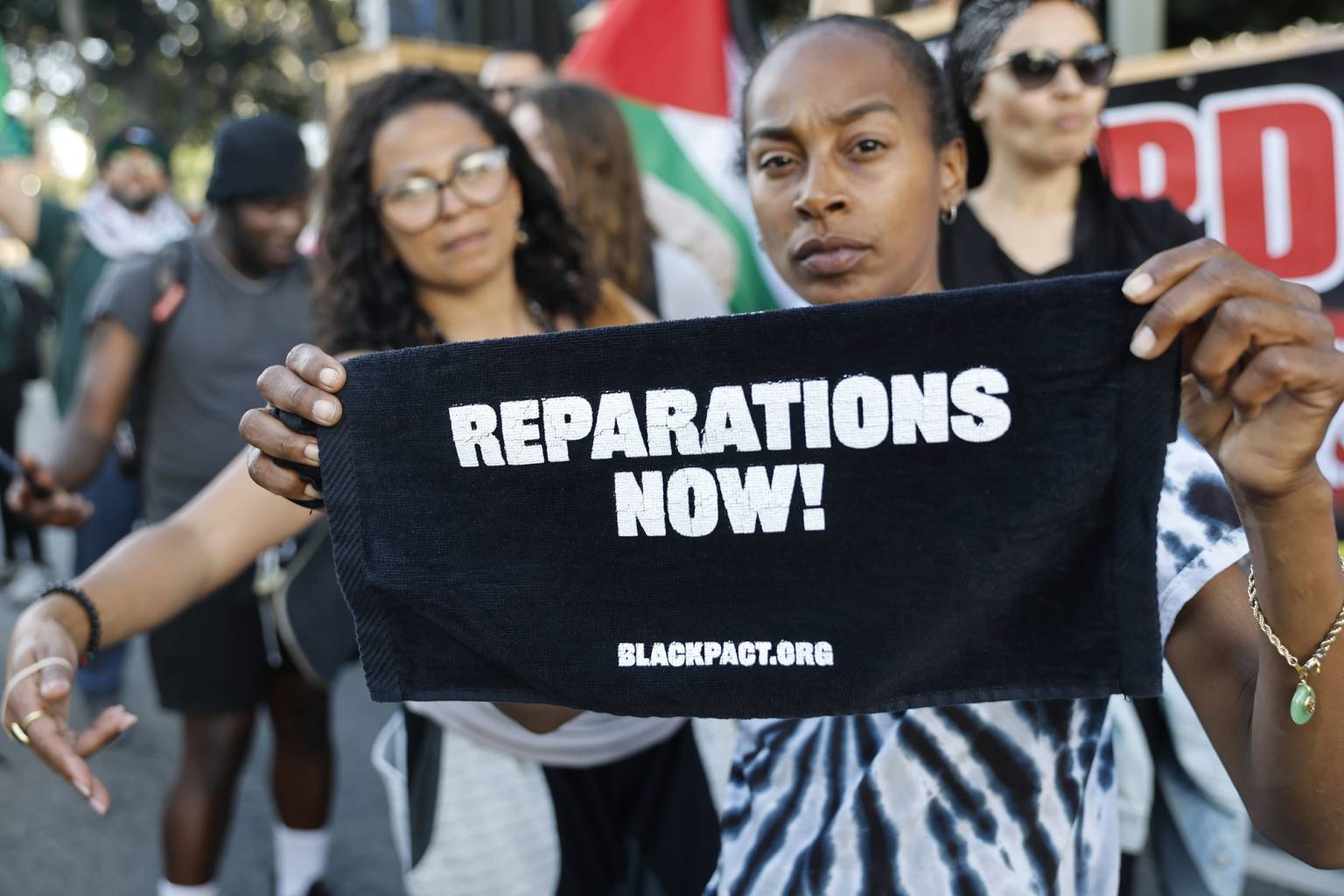Newsom Approves Reparations Study Funding but Rejects Other Racial Justice Measures

On Monday, California Governor Gavin Newsom made mixed decisions on several racial justice bills aimed at addressing the state’s history of discrimination against Black residents.
He approved $6 million in funding for California State University to develop a method to verify if someone is a descendant of enslaved people. However, he vetoed several other proposals backed by the California Legislative Black Caucus, which were inspired by a state reparations task force report.
Among the rejected bills was one that would have allowed colleges to prioritize applicants who are descendants of enslaved people. Another would have required the state to look into cases where families claim their property was unfairly taken through eminent domain due to racial bias. A third would have allocated 10% of a first-time homebuyer loan fund to those same descendants.
Assemblymember Isaac Bryan, who introduced the college admissions bill, called the veto “more than disappointing,” arguing that it’s a critical time to support students affected by generations of systemic exclusion. Newsom defended the move, saying colleges already have the discretion to consider such factors and that the bill was not essential.
In 2023, a California task force on reparations released a detailed report with recommendations for addressing historical harms to Black communities, but none of the bills on Newsom’s desk this year included direct financial payments.
Although California was admitted to the U.S. as a free state in 1850, it still allowed slavery in practice and passed policies that limited Black residents’ access to housing, business ownership, and safety, according to the task force.
Last week, Newsom signed a separate bill establishing a Bureau for Descendants of American Slavery, which will handle lineage verification for future reparations eligibility. A similar measure was blocked in the Legislature in 2024.
Senator Akilah Weber Pierson, who leads the Black Caucus and sponsored the new law, said it is a step toward accountability for California’s racist past. However, some advocates argue that it falls short. Chris Lodgson of the Coalition for a Just and Equitable California criticized the bill, saying it delays rather than advances real reparations.
Bryan’s admissions bill came after the U.S. Supreme Court banned affirmative action in college admissions and amid California’s own restrictions on race-based preferences, stemming from a 1996 voter-approved law.
Newsom also vetoed the homebuyer support bill, citing legal concerns about creating benefits based solely on ancestry. He rejected the eminent domain measure, stating the state Civil Rights Department lacks the expertise to carry it out. A similar proposal was vetoed last year for similar reasons, particularly because lawmakers did not move forward with establishing a reparations agency.
In 2024, Newsom did sign legislation offering a formal apology for slavery and its ongoing impact on Black Californians.

